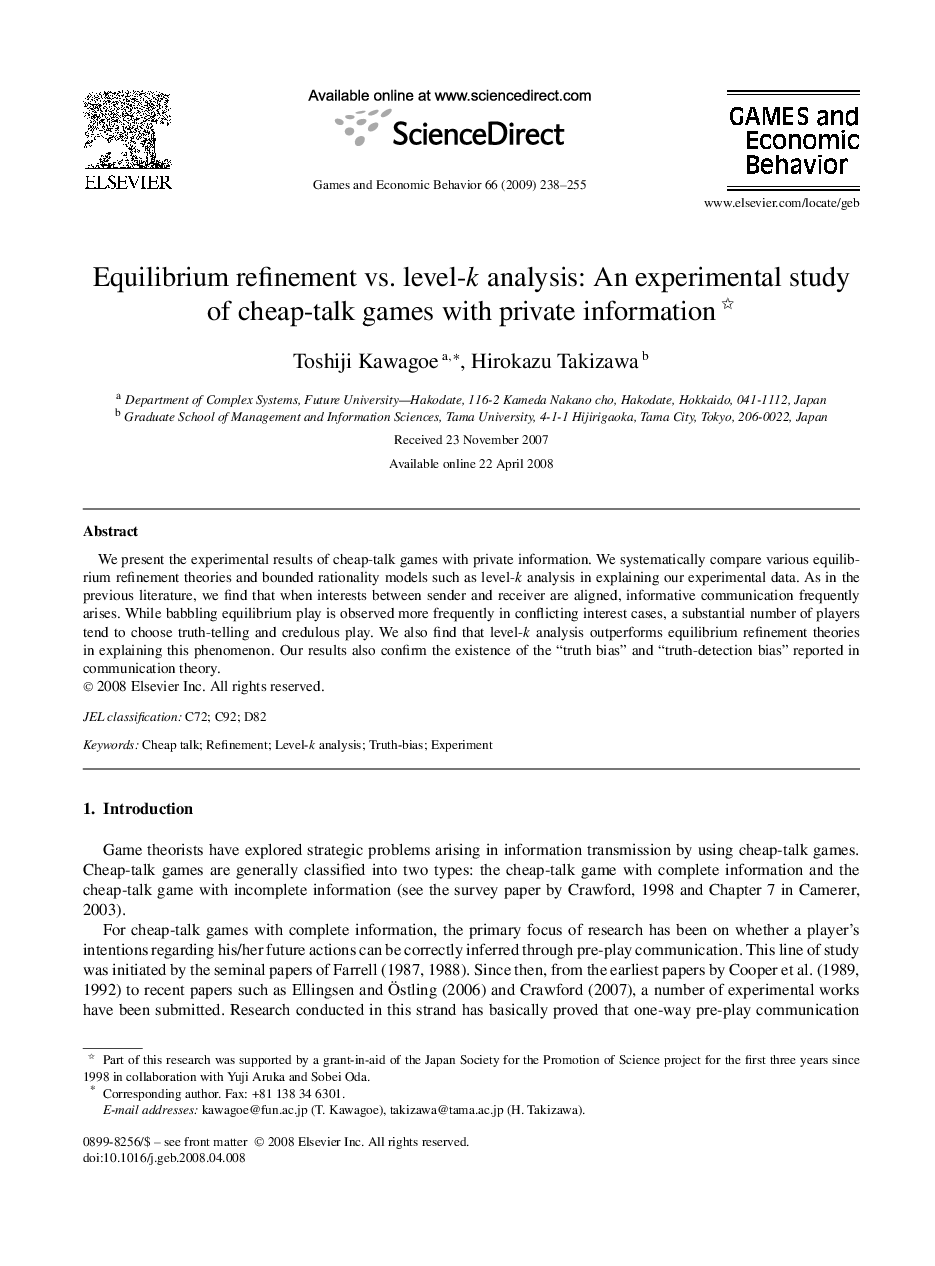| Article ID | Journal | Published Year | Pages | File Type |
|---|---|---|---|---|
| 5072833 | Games and Economic Behavior | 2009 | 18 Pages |
Abstract
We present the experimental results of cheap-talk games with private information. We systematically compare various equilibrium refinement theories and bounded rationality models such as level-k analysis in explaining our experimental data. As in the previous literature, we find that when interests between sender and receiver are aligned, informative communication frequently arises. While babbling equilibrium play is observed more frequently in conflicting interest cases, a substantial number of players tend to choose truth-telling and credulous play. We also find that level-k analysis outperforms equilibrium refinement theories in explaining this phenomenon. Our results also confirm the existence of the “truth bias” and “truth-detection bias” reported in communication theory.
Related Topics
Social Sciences and Humanities
Economics, Econometrics and Finance
Economics and Econometrics
Authors
Toshiji Kawagoe, Hirokazu Takizawa,
